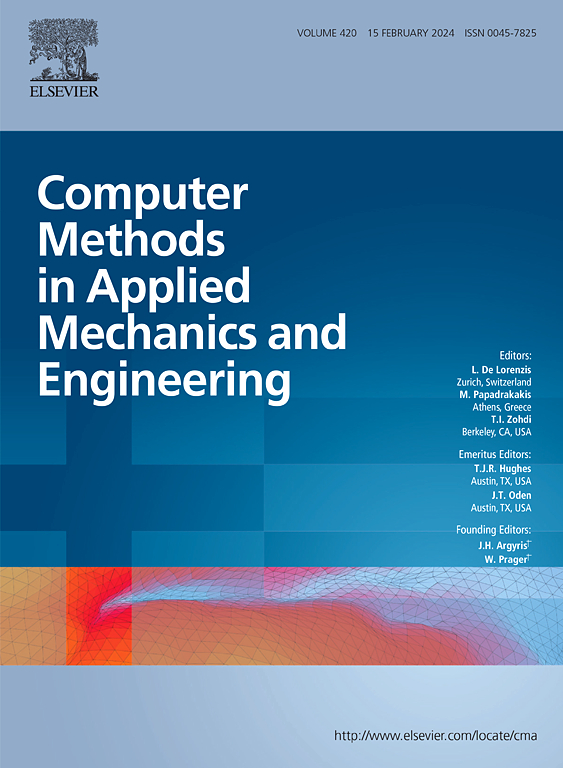Efficient Bayesian updating with single-loop Kriging model for time-dependent model calibration
IF 6.9
1区 工程技术
Q1 ENGINEERING, MULTIDISCIPLINARY
Computer Methods in Applied Mechanics and Engineering
Pub Date : 2025-06-12
DOI:10.1016/j.cma.2025.118150
引用次数: 0
Abstract
Bayesian updating, as a useful tool for system identification and model calibration, has gained signification traction in recent years. However, for time-dependent models, the number of observations will increase rapidly with the increase of the number of time nodes, resulting in Bayesian updating problems facing serious challenges. To settle this issue, this paper proposes an efficient Bayesian updating approach for time-dependent model, called Bayesian updating with single-loop Kriging model (BU-SILK). In the proposed method, Bayesian updating problem of time-dependent model is converted into a parallel system reliability problem, where the number of components is equal to that of discrete time nodes. Then, a single-loop Kriging model is constructed for the purpose of this parallel system reliability analysis. By selecting the best training sample and time node, Kriging model is refined adaptively until the specified stopping criterion is satisfied. The proposed Bayesian updating method can infer the posterior distributions of both static and dynamic parameters of time-dependent model. Four numerical examples show that the proposed method significantly improves computational efficiency without sacrificing accuracy.
基于单回路Kriging模型的有效贝叶斯更新,用于时变模型标定
贝叶斯更新作为系统辨识和模型标定的有效工具,近年来得到了广泛的应用。然而,对于时间依赖模型,随着时间节点数量的增加,观测值的数量会迅速增加,使得贝叶斯更新问题面临严峻的挑战。为了解决这一问题,本文提出了一种有效的时间依赖模型贝叶斯更新方法,称为单环Kriging模型贝叶斯更新(BU-SILK)。该方法将时间依赖模型的贝叶斯更新问题转化为并行系统可靠性问题,其中组件数等于离散时间节点数。然后,建立了并联系统可靠性分析的单回路Kriging模型。通过选择最佳训练样本和时间节点,自适应改进Kriging模型,直到满足指定的停止准则。所提出的贝叶斯更新方法可以推断出时间依赖模型的静态和动态参数的后验分布。四个算例表明,该方法在不牺牲精度的前提下显著提高了计算效率。
本文章由计算机程序翻译,如有差异,请以英文原文为准。
求助全文
约1分钟内获得全文
求助全文
来源期刊
CiteScore
12.70
自引率
15.30%
发文量
719
审稿时长
44 days
期刊介绍:
Computer Methods in Applied Mechanics and Engineering stands as a cornerstone in the realm of computational science and engineering. With a history spanning over five decades, the journal has been a key platform for disseminating papers on advanced mathematical modeling and numerical solutions. Interdisciplinary in nature, these contributions encompass mechanics, mathematics, computer science, and various scientific disciplines. The journal welcomes a broad range of computational methods addressing the simulation, analysis, and design of complex physical problems, making it a vital resource for researchers in the field.

 求助内容:
求助内容: 应助结果提醒方式:
应助结果提醒方式:


